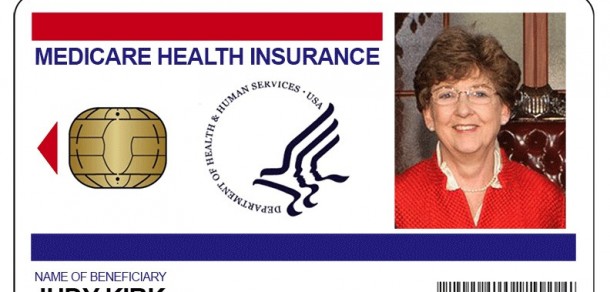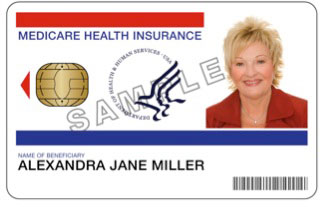Bill proposes Medicare Common Access Card
28 July, 2015
category: Digital ID, Government, Health, Smart Cards
Bills submitted in the U.S. House of Representatives and U.S. Senate proposes a smart card pilot program for Medicare recipients. H.R. 3220 was submitted by Rep. Peter Roskam (R-Ill.) and S. 1871 was submitted by Sen. Mark Kirk (R-Ill.). Both bills have been sent to committee.
The bill calls for a Medicare Common Access Card – taking its name from the smart card issued to Defense Department employees. If passed through Congress and signed into law the bill would require the Department of Health and Human Services to initiate a smart card pilot for Medicaid recipients.
The Medicare identity card doesn’t have any real security features and displays an individual’s Social Security number. The Medicare Common Access Card Act would use the same type of smart card technology the Defense Department make Medicare cards more secure. The chip technology would keep personal information secure and would give Medicare beneficiaries assurances their billing is accurate when they visit their doctor.
The goals of the pilot would be to:
- Increase the quality of care furnished to Medicare beneficiaries
- Improve the accuracy and efficiency in the billing for Medicare items and services
- Reduce the potential for identity theft and other unlawful use of Medicare beneficiary identifying information
- Reduce waste, fraud, and abuse in the Medicare program.
This isn’t the first time Kirk has proposed such legislation. The bills also come on the heels of a GAO report that looked at using machine-readable technology for recipients in order to reduce fraud.
It’s estimated that $60 billion each year is lost to waste, fraud and abuse in Medicare. Using a smart card would address the “pay and chase” system. Currently, the government pays Medicare reimbursements without first verifying the validity of the charges and then, if the charges prove to be fraudulent, attempts to track down those responsible.
Co-sponsors for the bill include Sen. Marco Rubio (R-Fla.) and U.S. Rep. Earl Blumenauer (D-Ore.).




